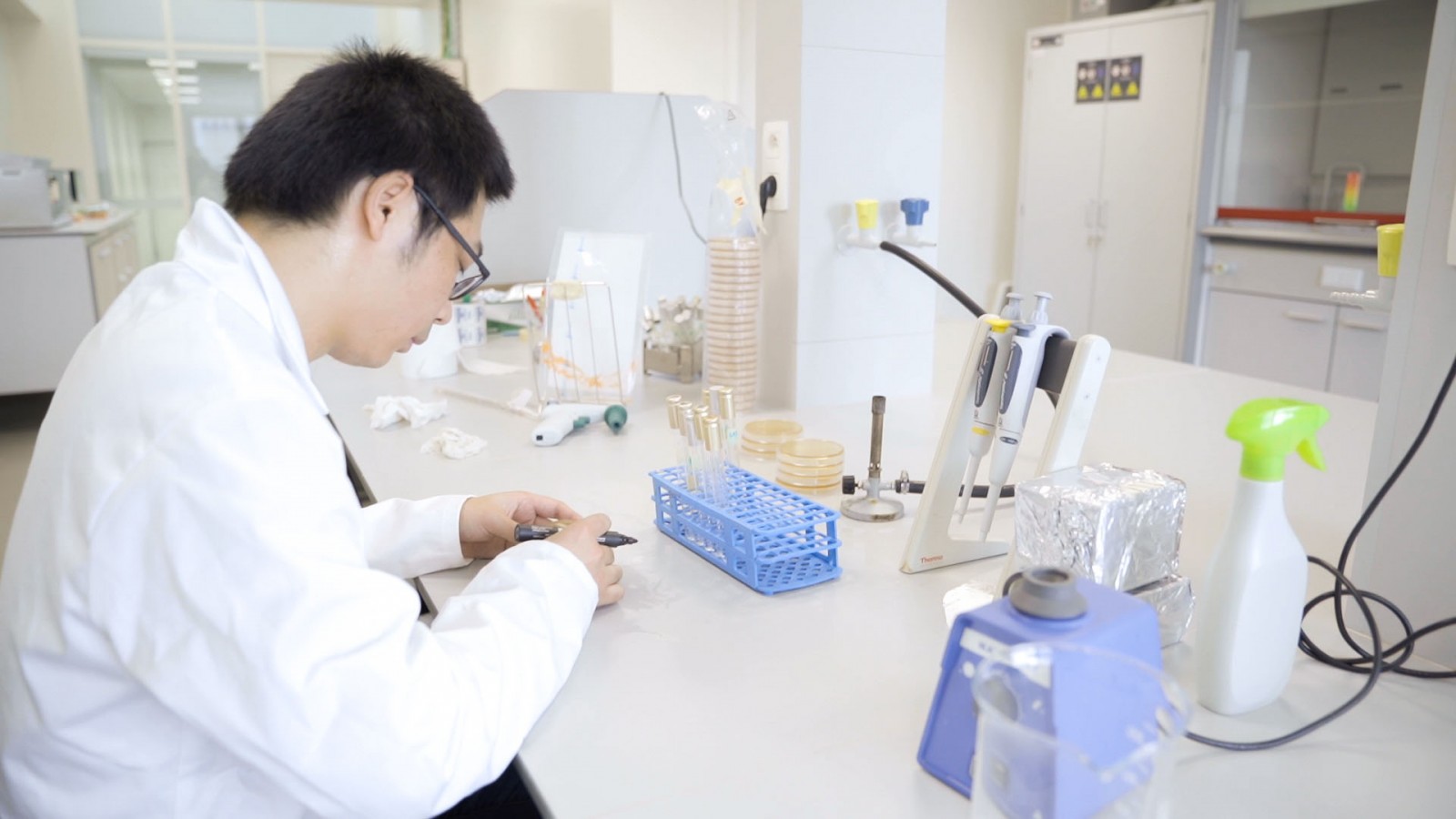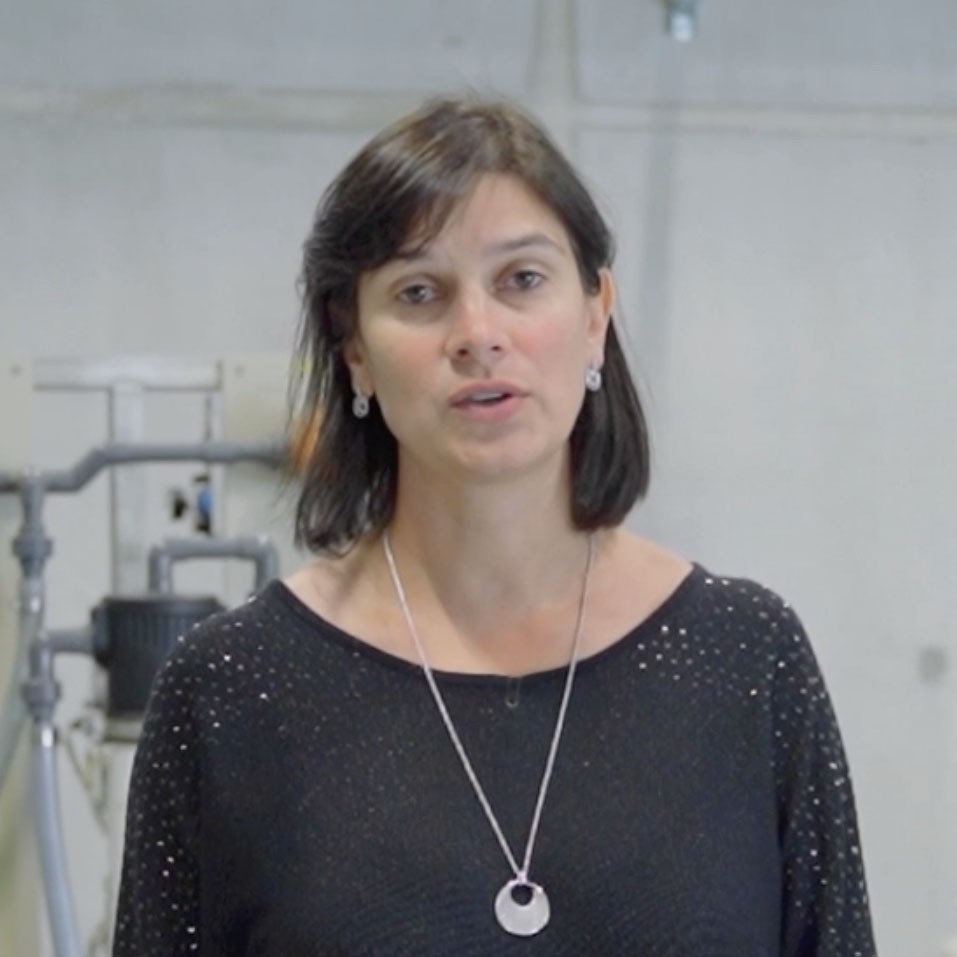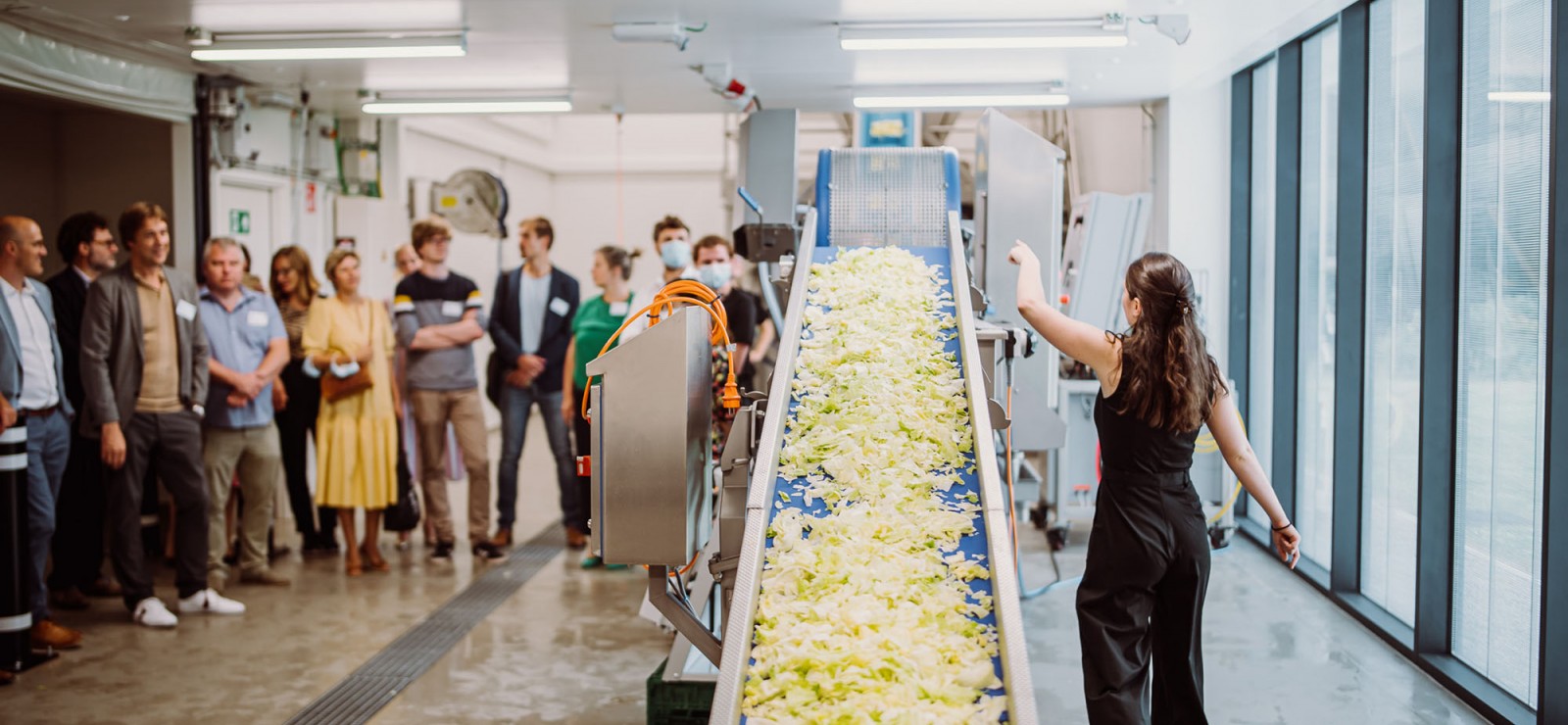A large quantity of water, energy, and nutrition is lost during the processing of vegetables and potatoes. Too much water. At a time when we’re trying to minimise waste, and water is a scarce resource, we need to be smarter about how we manage these losses. The VEG-i-TEC research centre is therefore reviewing the processing method from start to finish.
Something to think about the next time you’re in the chip shop: our fries are in danger of extinction. It’s all to do with water scarcity. Imca Sampers, a professor at the Department of Food Technology, Food Safety and Health: “The potato varieties most commonly grown here are not used to the dry seasons. The potatoes are getting smaller but all we want are nice long fries.”
Sustainable, healthy, and delicious
Can anything be done about it? Researchers are working on a solution: “What we’re doing is looking at different varieties or other processing methods. For example, we’re investigating how, by adjusting the process, we can get a perfect end product from a crop that doesn’t quite meet the requirements.”
This research is taking place at VEG-i-TEC, a brand new UGent research centre, located at its campus in Kortrijk. “It’s our mission to make the food industry sustainable and circular. But we’re taking it a step further: we’re also trying to do it in a way that’s healthy and tastes great.”
“We take a close look at the whole chain, from raw material to finished product, and that’s what makes VEG-i-TEC unique. We didn’t do this in the past, which meant that the transition from a controlled lab setting to the factory floor—with its many unpredictable parameters—was too big for our solutions to be truly workable. Now that we’re looking at each step in the process, we’re making the translation to industry more straightforward.” It’s clear that companies like the new approach: VEG-i-TEC has already received more than fifty research requests.
Water management high on the wish list
One of the issues that will receive a great deal of attention at VEG-i-TEC in the near future is the increasing scarcity of water. It threatens more than just our fries, and is one of the greatest challenges facing the entire West Flemish and European food industry. Water management is therefore high on the sector’s wish list. It should come as no surprise that an entire (waste)water treatment hall has been set up in the building.
Imca: “Nowadays, companies purify their wastewater and then discharge the majority of it—only a portion is reused. But if they’re taking the trouble to purify the water, wouldn’t it be smarter to reuse it right away? The question is: how can that be done safely?”
“They want us to tell them which parameters, such as possible pathogens, they need to monitor in order to guarantee water quality, how to keep pesticides out of the wastewater etc. The advantage of having our own research centre is that we can now test all kinds of worst-case scenarios to find our answers. We used to do tests at other companies and of course it meant we couldn’t go that far.”

Less waste
Water scarcity is by no means the only issue with which companies are approaching VEG-i-TEC. During the production processes for vegetables and potatoes, not only is a great deal of water lost but, additionally, a large proportion of the vegetables themselves are not used. “Think of the potato chips that are too small to be made into fries. They’re packed with protein. Or the pulp from the fruit industry, from which we can extract dyes. It would be a shame to not do anything with it,” Imca says.
So it’s about being creative with by-products. But where do you start? “By making extracts from these by-products or by growing fungi or bacteria on them, we can release components and break down the by-products. We can use these components again in various food applications, but they can also be used for cosmetics, in crop protection, or in textiles. In this way, these by-products are given an important second life and less material is lost.”
Less plastic
Less food on the rubbish heap, but ideally also less plastic. Packaging materials are another problem in the food industry. To reduce the mountain of plastic, the sector is aiming to focus more on recyclable or bio-based materials with a lower environmental impact. However, the quality and safety of our food must not, of course, be compromised.
How do you reconcile the two? Imca: “We’re looking for alternatives to conventional plastics. We look for the right combination of packaging, food, and packaging technology, and test it out in practice. This allows us to see what can go wrong in the process and to make adjustments where necessary. To ensure quality, we work with machine builders to develop our own packaging machines that are easy to clean and we focus on recyclable, bio-based, or reusable packaging.”
And so your next order from the chip shop may well be a little more sustainable.
VEG-i-TEC is a “living lab” run by UGent, which focuses on the vegetable and potato processing industry. The research centre is looking for innovations to make the sector more sustainable and circular.

Imca Sampers, Senior Lecturer, Faculty of Bioscience Engineering, Department of Food Technology, Food Safety and Health. Her favourite meal in the student restaurant: “Porridge when I did my thesis at Ghent University Hospital, or the sandwiches at the Faculty of Veterinary Medicine during my PhD.”
Read also
International top recognition for researcher who is combating ‘hidden’ hunger
From now on, Professor Dominique Van Der Straeten can call herself a fellow of the prestigious American Association for the Advancement of Science (AAAS). This international recognition honours researchers who are making an invaluable contribution to science and its application. In the case of professor Van Der Straeten, it recognises her research, which aims to reduce ‘hidden’ hunger and the consequences of climate change.
The student who actually reinvented the wheel
Revolutionary: that’s the least you can say about Ghent University student Wannes Van Laerhoven’s invention. He designed a new type of tire: airless, sustainable and suitable for an infinite number of applications – from wheelchairs to electric kick scooters. No surprise, then, that he won 2 out of the 4 prizes handed out at the prestigious Circular Economy Challenge.
How best to keep your chocolate cool in summer?
If you have a sweet tooth, you’ll know how difficult it is to keep chocolate cool during the summer months. So where should you store it? In a cupboard or in your fridge?
CO₂ from steel manufacturer transformed into fish food
What does steel production have to do with fish-food production? Everything! If you ask Myrsini Sakarika and Nele Ameloot from Ghent University. After all, they are helping to convert CO2 from the steel manufacturer ArcelorMittal Belgium into proteins, which can then be used for fish food. Pioneering research, although some finetuning is still necessary: “Fish are pretty demanding when it comes to their diet.”




